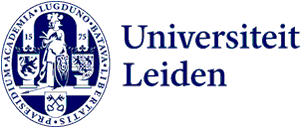Bilingual and international education central to World Teachers Programme
In this bilingual profile, you follow university teacher training with a special focus on language, culture and diversity in bilingual and international education. Student Lauren Rutherford and educator Tessa Mearns talk about this programme.

Bilingual parenting and teaching
Lauren: 'What am I going to do when my daughter goes to school, I thought a few years ago. I wanted to do teacher training and found the World Teachers Programme (WTP), which is partly in English. Because of my daughter's bilingual upbringing, I read quite a lot about bilingual parenting and education, very interesting. Now I teach chemistry at a school with regular Dutch-speaking and bilingual education (TTO), as well as international education.'
Teaching in English and Dutch
Tessa Mearns (teacher trainer at ICLON) adds: 'For Lauren, it is possible to teach all the different levels in Dutch and English at her school. For example, if you teach chemistry at a Dutch bilingual school, you often teach English in the lower grades. But in higher grades, it usually switches back to Dutch. At a purely international school, everything is in English, so you have to be able to speak both English and Dutch. For the WTP, an admission requirement is that you can speak Dutch. Moreover, we strongly recommend that you do not do WTP if you do not have C1 level English. Because the schools expect a certain level of English.

The WTP at ICLON is bilingual. Subject didactics and pedagogy most students take in Dutch and special WTP seminars are in English. School practice, half of the teacher training, is at a bilingual or international school. And Pedagogical-didactic skills we do in a separate WTP group in English with extra attention to the roles of language, culture and diversity.'
Thinking about a lot at the same time
Lauren: 'I now teach at all parts of my school: international school, TTO (bilingual education) and regular vwo. After all those lectures at WTP, I think a lot more about language besides chemistry. For example, what is it like to study in a language that is not your first language? What is it like for the TTO students, doing everything in English? What can they already do and what do they understand? I experienced that myself in the programme, so very interesting for me.
The WTP is an intensive programme. You have to think about a lot of different things at the same time. So not only just subject didactics, but also cultural things, language. You are constantly working on different things. That makes it a challenge.'
Tessa: 'It's not so much that it's extra work in terms of hours. But it takes effort in a different way. I think you have to be someone who finds that interesting and fun. You have to enjoy thinking about this aspect of teaching.'
Internship abroad
Lauren: 'For my internship abroad, I went back to my old school in Northern Ireland. It's been more than 20 years since I was at the school. So I really wanted to know what has changed. And what is different from here in the Netherlands? That was very interesting. Actually, not that much was different from before, but very different from the Netherlands. Everything is focused on performance, on exams. So you teach in such a way that students know what they have to write down on the exam, literally. In the Netherlands, they do more active things in class and inquiry-based learning. Class management is also very different, students are very well-behaved.'
From Calcutta to Curaçao
Tessa: 'At the WTP, you get the chance to do internships abroad. We had a student this year who went to an international school in Calcutta, and students sometimes go to Curaçao. But also to different European countries and all kinds of different types of schools. Last year, two students went to my old school. We have a big network of alumni, in lots of different locations.
The internship can also take place at another type of school in the Netherlands. For example, this year we had someone doing an internship at a Dalton school in The Hague. And a student going to a school with a large international class for young people who have just come to live in the Netherlands.'
Becoming a teacher with something extra
Lauren: 'I recommend the WTP if you want to become a teacher, but with something extra. It is varied, because you have the opportunity to teach in Dutch and English. Moreover, bilingual and international schools are different. It's just nice to have a broad education.'
Tessa: 'I recommend the WTP not only for students who want to teach TTO or international education. But also because you are interested in the topics we discuss in World Teachers, the role of language in your subject. For example, Content and Language Integrated Learning (CLIL). Issues of diversity, cultural diversity, but also other types of diversity and the role of culture in education are also discussed. These are not things that are only relevant in bilingual and international education. We have former students who now work in completely different contexts. They indicate that they benefit from the things they learned in WTP. So even when they teach Dutch children in Dutch, or very diverse children with all kinds of different language backgrounds. They find what they learned about CLIL as relevant there as in TTO. Moreover, they find the focus on the role of culture and diversity in the way you deal with pupils very valuable. But also the perspective on the material you cover.'

Is the World Teachers Programme for you?
Are you interested in internationally oriented teaching with a focus on the role of language, culture and diversity? Do you speak English at a minimum C1 level and would you like to teach in English? Then the World Teachers Programme (WTP) might be for you!
